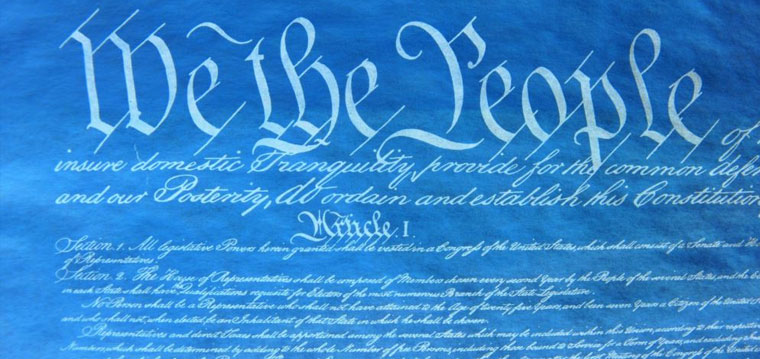
I’ve spent time answering questions on Quora, but felt that many of them deserved longer answers than I could provide there. So I’m going to start turning those longer answers into posts here.
Quora is a fascinating platform that offers a glimpse into diverse perspectives and lifestyles. However, it can also be a breeding ground for partisan biases, trolling, and disguised personal attacks. Recently, a question caught my attention on Quora:
“What are your thoughts on free speech? Do you believe it should have restrictions or do you think that it should be unrestricted? Why or why not?”
I must admit, I wasn’t sure how to approach this question.
The person asking could be genuinely curious about everyone’s stance on “free speech”, and looking for a serious discussion. But, typically, when the topic of free speech arises, it’s often accompanied by complaints of “cancel culture” from individuals on the Right. So, I was a bit cautious. It seems that those who cry foul about their freedom of speech being curtailed often misunderstand the concept itself. The First Amendment of the US Constitution explicitly states, “Congress shall make no law respecting an establishment of religion, or prohibiting the free exercise thereof; or abridging the freedom of speech, or of the press; or the right of the people peaceably to assemble, and to petition the Government for a redress of grievances.”
It’s pretty straightforward. Congress, which represents the government and the law, cannot restrict your speech. However, there are limitations. As Supreme Court Justice Oliver Wendell Holmes once said, “your right to swing your arms ends just where the other man’s nose begins.” This means that while you are free to shout “Fire!” in a crowded movie theater, you will face consequences for doing so. And if anyone gets hurt in the process, you are responsible.
Yet, your freedom of speech remains intact. You can freely express your opinions on social media, even if it involves threatening a politician or head-of-state. However, authorities may investigate to assess whether your speech poses a genuine threat. This is not an infringement on your speech; it’s an evaluation of your potential actions based on what you’ve said.
Regardless of political affiliation or ideology, it seems reasonable to agree that this approach is just and logical. The real confusion arises when we discuss the notion of “cancel culture.” Personally, I don’t believe cancel culture exists. It seems more like a mythical concept, akin to unicorns, dragons, or the tastiness of kale. The fact that so many people perceive cancel culture as a threat to free speech is truly perplexing.
What we commonly refer to as “cancel culture” could be more accurately described as “consequence culture.” People aren’t being canceled; they are facing the consequences of their actions. You have the freedom to say anything you want, and the First Amendment ensures that Congress will not take action against you because of your words. However, it doesn’t mean that society must accept everything that comes out of your mouth.
So, while you have the freedom to fill your social media with vile and offensive views, your employer might decide that they don’t want someone with those beliefs representing their company or engaging with their customers. You have the freedom to speak, and they have the freedom to distance themselves from you and your perspectives.
Consider the case of actress and former MMA athlete Gina Carano, known for her role as “Cara Dune” in Disney’s “The Mandalorian.” She had the potential for an ongoing role in the franchise, including spin-offs and other stories. However, in February 2021, Disney announced that they would not be renewing her contract due to “abhorrent and unacceptable” social media posts. Her management agency also dropped her. These decisions were the consequences of years’ worth of posts sharing vaccine misinformation, expressing transphobic views, and endorsing anti-Semitic content. Her right to speak freely was not infringed; it was her words, found unacceptable by society and her employer, that cost her a job.
In essence, she swung her arm, and it collided with someone else’s nose. She was free to speak but also free to face the consequences.
Sure, you have the freedom of speech to approach a random person of color and hurl racial slurs. However, be prepared for the repercussions that may follow. It’s highly likely that you’ll receive a swift and justified response. But remember, your freedom of speech remains intact. The consequences of your words do not impede your ability to utter them.
I once came across a meme that stated, “Anyone can say the N-word. Results may vary.” I’ve posted before about use of the N-Word, so I won’t delve into the details of that again, but, you need to understand that the consequences of using the word have done nothing to infringe upon your ability to say it. As we say in the vernacular, “You can fuck around and find out”.
In conclusion, freedom of speech is a vital and cherished right. It ensures that the government cannot silence us based on our beliefs or opinions. However, it’s important to understand that freedom of speech does not shield us from the consequences of our words. We must navigate the realm of speech with responsibility, recognizing that society has the right to respond and hold us accountable for our expressions. So, exercise your freedom of speech thoughtfully, and be prepared for the reactions and outcomes it may generate.
